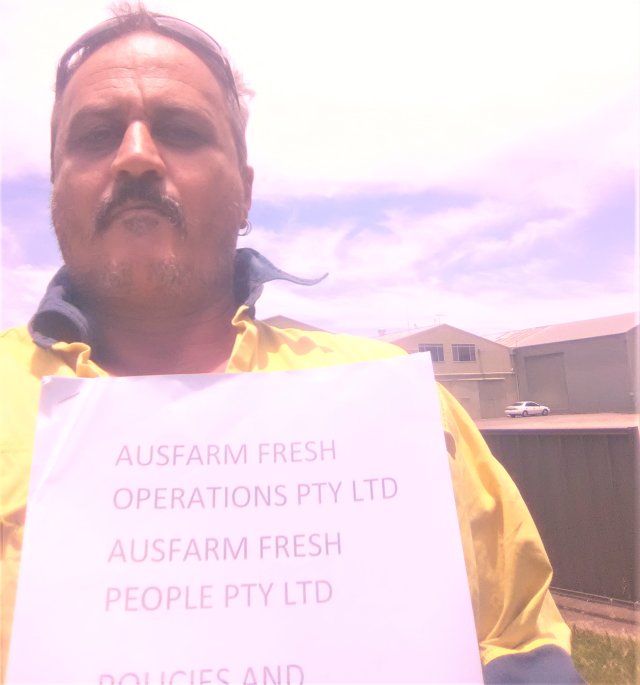
The pandemic has thrown up many challenges for employers and employees, backpackers and farmers.
After hearing about the plight of farmers unable to get their crops picked due to the decimated numbers of the easily exploitable backpacker workforce, I saw an opportunity for a tree change and an investigation.
I am not a total novice to farm work, having has some experience on small crop farms in the Burdekin in 2006. Going from the Innisfail Advocate newsroom to a paddock was a “transformational” experience, to say the least.
Backpackers and seasonal workers are seen as cash cows for the hostels and the farmers who enter backpacker labour hire arrangements with the district’s farms.
Unscrupulous accommodation providers often confiscate the passports of the international “guests” and will only offer work to those who are staying at their hostels.
The fact that the hostels are overcrowded and cannot provide bedding to all of their guests is irrelevant as the hostel owner has their passports and many struggle with English and would not know who to complain to anyway.
By chance, I had met three Scandinavian backpackers suffering this plight; they were staying in an “overflow” house, away from the hostel, where they were told they would have to share a single bed.
Having a licence and staying at the Malpass Hotel meant that I was able to get some farm work. Part of my job was to drive the minibus full of backpackers to the farm. They would sign on while I would park up.
The labour hire provider was another backpacker hostel not far away from the pub and pays could be collected from there on a Friday afternoon.
After finishing work on the Friday and dropping off the backpackers, I was told pays wouldn’t be ready for a couple of hours. When I went back later they asked who I was and after telling them and reminding them that I was the bus driver they said they had no record of me and therefore I would not be paid.
This first-hand experience of the grubs in cahoots with each other to rip people off was the catalyst in my seeking farm work on the Southern Downs in Queensland.
It only took just a day on one farm to see that the exploitation was continuing.
I got a job thinning apples for AusFarm Fresh. It claimed to have a Certified Workplace Agreement, which I found dubious given the work. It would definitely not pass the BOOT (better of overall test).
The agreement states: “Any additional hours beyond 38 hours per week will be paid at ordinary rates”.
This points to the federal government being in cahoots with such companies to exploit backpackers. Otherwise, how can an agreement which removes penalty rates for employees be certified?
The Horticulture Award makes is clear that there are different rates for overtime and that during the “harvest period” the overtime rates do not apply. This means that award itself fails the BOOT.
Given that Ausfarm Fresh’s workforce is casual, how can this agreement for permanent workers be struck? Who voted for this agreement and when was it last reviewed?
After working for 7.5 hours I was told “This job is not for you”. I was sent to the packing shed and told to say I had worked half a day. I wasn’t going to argue, having gathered enough information to determine the work practices were not above board.
I am not suggesting any impropriety by AusFarm Fresh. But if the labour shortage is as dire we are being led to believe, why was I sacked on my first day?
It could have been because one of the bosses was worried that as I was an Australian and not a foreign worker, I would be more educated about workplace rights.
When given instructions about where to put the thinned apples, I replied: “Yeah, no worries mate”. His clear surprise at hearing my Aussie accent led me to believe that my sacking was about more than my performance.
Australians are more educated about their workplace rights compared to backpackers who are more likely to accept the bad conditions, grateful to be working. They also have no welfare to fall back on, and are unlikely to look up workplace agreements or awards.
The backpacker workforce works Boxing Day and other public holidays, with no penalties. This wage theft may boost the farmers’ profits, but it is also removing income from the tourism and hospitality sectors.
Like many restaurateurs — where wage slavery is rife — many farmers are just as thieving. They expect bail-outs when times are tough, but when times are good they too can be profiteers. It is a shame that those farmers give the decent ones a bad name. The shame extends to the government for allowing it to happen.
Unlike backpackers, David Littleproud, MP for Maranoa and deputy leader of the National Party was not working the Christmas period and nor was his email address (to which I sent questions). Numerous calls to his Warwick and Dalby offices also went unanswered.